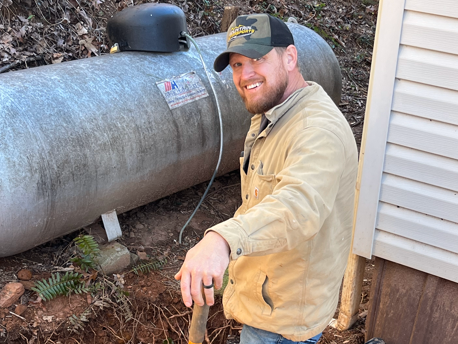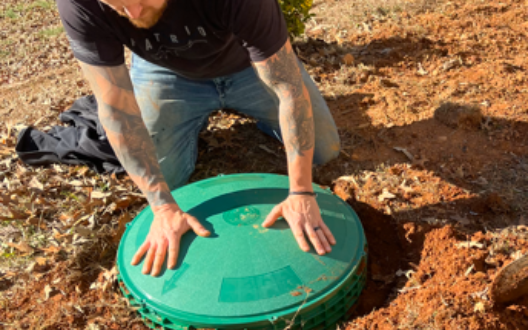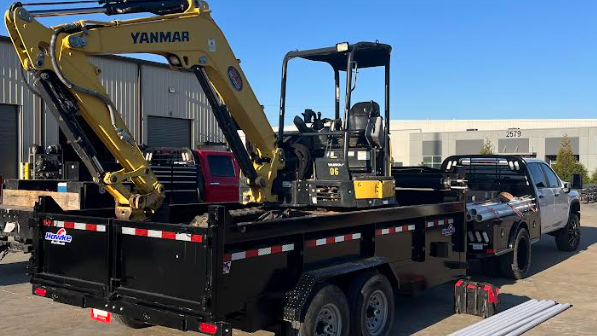
Most homeowners know septic systems exist "somewhere out there" in their yard, quietly doing their job. But beyond the basic understanding that they handle wastewater, there's a fascinating world of science, engineering, and even some quirky facts that might blow your mind. With the help of professional septic solutions, these underground workhorses not only keep our homes running smoothly but also stay efficient and reliable for years to come. Let's look into the surprising truths about these hidden systems and why they deserve more credit than they get.
Your Septic System Is Actually a Thriving Ecosystem
Here's something that might make you look at your yard differently: your septic system is home to billions of hardworking bacteria. These aren't the scary germs you're thinking of – they're the good guys! Septic systems bacteria are actually essential workers that break down waste and keep your system functioning properly.
These microscopic heroes feast on organic matter, converting solid waste into liquid form that can safely filter through your drain field. Without them, your septic system would quickly become overwhelmed and fail. It's like having a microscopic cleanup crew working 24/7 in your backyard, and they never take a day off.
The Great Goldfish Myth Is Actually True (Sort Of)
You've probably heard the urban legend about flushing goldfish down the toilet, but here's a twist: some septic professionals have actually found live fish during tank pumping! While we absolutely don't recommend this practice, the anaerobic environment in septic tanks can sometimes sustain small aquatic life. However, these unexpected visitors usually indicate septic system issues that need immediate attention.
Your Septic Tank Is Stronger Than You Think
Most people picture septic tanks as flimsy containers that might crack at any moment. In reality, a properly installed concrete septic tank can support the weight of several cars driving over it. These underground giants are built to last decades and withstand tremendous pressure from above and below ground.
However, this doesn't mean you should park your RV over your drain field. The soil and pipes below ground level are much more delicate than the tank itself.
The "Flush and Forget" Mentality Costs Thousands
Here's a fact that might sting your wallet: the average cost of septic system failure runs between $10,000 to $25,000. Yet most homeowners spend less than $50 per year on preventive maintenance. That's like buying a car and never changing the oil!
Septic system pumping recommendations typically suggest pumping every 3-5 years for most households, but this simple maintenance task can prevent catastrophic and expensive failures. Think of it as insurance for your home's most important underground investment.
Your Toilet Paper Choice Actually Matters
Not all toilet paper is created equal when it comes to septic systems. Ultra-soft, quilted, or "extra-strong" toilet papers often contain additives and take longer to break down. This can lead to buildup in your tank and potentially cause blockages.
The best toilet paper for septic systems dissolves quickly in water. You can test this yourself: drop a few sheets in a jar of water and shake it. If it breaks apart easily, it's septic-friendly. If it stays intact, you might want to switch brands.
Antibacterial Products Are Your System's Enemy
Here's an ironic twist: while bacteria are essential for your septic system, antibacterial products can seriously harm it. Excessive use of antibacterial soaps, cleaners, and even certain medications can kill off the beneficial septic systems bacteria your system depends on.
This doesn't mean you need to live in a bacteria-friendly community, but moderation is key. Choose regular soap over antibacterial versions when possible, and avoid pouring harsh chemicals down your drains.
Your System Can Actually Handle More Than You Think
Many homeowners tiptoe around their septic systems, afraid that hosting a dinner party or doing extra laundry will cause problems. While it's true that sudden increases in water usage can overwhelm your system, modern septic systems are designed to handle normal household fluctuations.
The key is spreading out water usage when possible. Instead of doing five loads of laundry on Saturday, spread them throughout the week. Your system can handle the load, but it prefers consistency over sudden surges.
The Smell Test Isn't Always Reliable
Most people assume that if their septic system doesn't smell bad, everything is fine. Unfortunately, this isn't always true. Some septic system issues develop without obvious odors, especially problems with the drain field or distribution box.
Regular inspections and maintenance are much more reliable indicators of system health than your nose. By the time you smell problems, you might already be looking at expensive repairs.
Your System Works Best When It's Full
This might seem counterintuitive, but septic tanks are designed to remain full. The key is understanding what "full" means in septic terms. Your tank has three layers: scum on top, liquid in the middle, and sludge at the bottom. When working properly, the tank maintains these levels automatically.
The liquid level should remain relatively constant, even as waste enters and treated water exits to the drain field. It's the accumulation of sludge and scum that requires periodic pumping.
Weather Can Affect Your System More Than You Realize
Septic systems are surprisingly sensitive to weather changes. Heavy rains can saturate your drain field, preventing proper filtration and potentially causing backups. Conversely, drought conditions can affect the bacterial balance in your tank.
Extreme cold can also slow down bacterial activity, making your system less efficient during winter months. This is why septic system services recommend adjusting maintenance schedules based on local climate conditions.
The Technology Is Ancient but Effective
The basic concept behind septic systems hasn't changed much in over 100 years. The first modern septic system was installed in the 1860s, and the fundamental principles remain the same today. Sometimes the old ways really are the best ways.
However, modern materials and design improvements have made today's systems much more reliable and efficient than their historical counterparts. New technologies like advanced treatment units and drip distribution systems are making septic systems even more effective.
Your System Can Last Longer Than Your Mortgage
With proper care and maintenance, a well-installed septic system can last 30-40 years or even longer. That's longer than most people live in their homes! Compare that to the 10-15 year lifespan of many household appliances, and you realize just how durable these systems really are.
The secret to longevity isn't rocket science. It's consistent maintenance, smart usage habits, and professional septic system services when needed.
Keeping Your Septic System Strong for Decades
Your septic system is far more fascinating and resilient than most people realize. From the billions of helpful bacteria working around the clock to the impressive engineering that keeps everything flowing smoothly, these systems deserve more respect than they typically receive.
The key takeaway? A little knowledge and regular maintenance go a long way. By understanding how your system works and following basic septic system maintenance recommendations, you will avoid most common problems and keep your system running efficiently for decades.
Remember, your septic system isn't just a necessity. It's a marvel of biological and mechanical engineering happening right in your backyard. Treat it well, and it will serve your family faithfully for years to come.
What's the best way to maintain my septic system between professional services?
The best approach combines smart usage habits with simple maintenance. Avoid flushing non-biodegradable items, spread out water usage throughout the week, use septic-friendly products, and have your tank inspected annually. Additionally, keep detailed records of pumping and maintenance to help professionals track your system's health over time.
How do I know if my septic system bacteria levels are healthy?
Signs of healthy bacterial activity include normal drainage, minimal odors, and clear effluent in your tank's liquid layer. If you notice slow drains, strong sewage smells, or gurgling sounds from your plumbing, your bacterial balance might be disrupted. A professional inspection can test bacterial levels and recommend solutions like bacterial additives or system adjustments to restore proper function.



